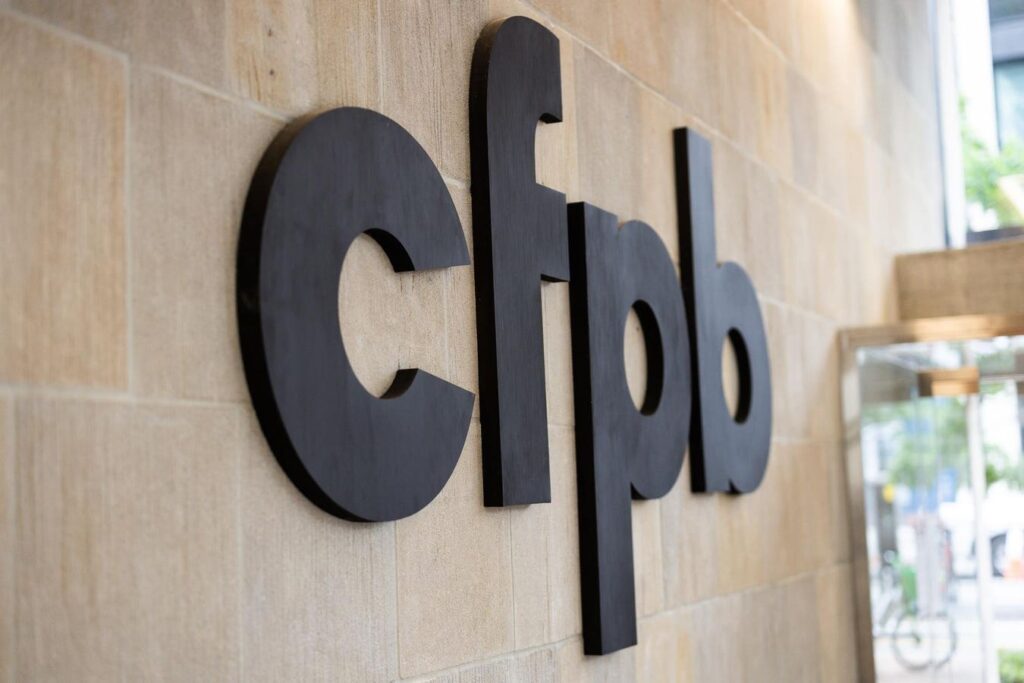CFPB Calls on Other Enforcement Agencies to Address Bait-and-Switch Credit Card Rewards Practices
The CFPB issued a circular to other law enforcement agencies warning that some credit card companies operating rewards programs may be breaking the law. The CFPB’s circular highlighted various ways that credit card companies could violate federal law: Devaluing of Earned Rewards. Hiding the Conditions for Earning or Keeping Rewards. Fine print disclaimers and vague terms buried in a contract may conflict with prominent promotional language highlighting the rewards that consumers can earn. Revoking, canceling, or preventing consumers from redeeming rewards based on such conditions may also be an unfair or deceptive act or practice. Failing to Deliver Promised Benefits. System failures which result in consumers losing points when attempting to redeem them may be considered an unfair or deceptive practice. [The National Law Review]
U.S. Holiday Retail Sales Stronger Than Last Year with Online Boost
U.S. retail sales rose 3.8% between Nov. 1 and Dec. 24, as intense promotion to drum up sales in what was expected to be a highly competitive holiday season for retailers prompted last-minute shopping among consumers. The sales jump was well above a 3.1% increase last year, handily beating Mastercard’s forecast in September of a 3.2% rise, with the last five days of the season accounting for 10% of all holiday spending. Major retailers including Walmart, Target and Amazon ramped up promotions and value messaging to entice customers amid a shorter-than-usual holiday season with just 23 days before Christmas. [USA Today]
Which States Had the Most Credit Cards in 2024?
A study by WalletHub compared the number of credit cards owned and opened towards the last half of the year in 50 states and found that Alaska, South Dakota, New Jersey, Montana and North Carolina came in as the top five. Wyoming, Iowa, North Dakota, Colorado and Hawaii came with people having the least credit cards. The average American has around 5 credit cards. [NewsNation]
Average American Credit Card Debt in 2024
At first glance, credit card debt numbers in the United States look enormous. Consumers owe a record $1.166 trillion on their credit cards, and the average American credit card debt balance is $6,380. How much credit card debt does the average American have? The average balance is $6,380 as of the third quarter of 2024, according to TransUnion. That’s a 5% increase from 2023, although credit card debt is growing more slowly than in previous years. [The Motley Fool]
CFPB Sues Walmart and Branch Messenger For ‘Illegally’ Opening Deposit Accounts for More Than One Million Delivery Drivers
The CFPB has sued Walmart and Branch Messenger for forcing delivery drivers to use costly deposit accounts to get paid and for deceiving workers— “last mile” drivers in Walmart’s Spark Driver program—about how they could access their earnings. The CFPB’s lawsuit alleges that Walmart and Branch opened Branch accounts for Spark Drivers, and Walmart then deposited drivers’ pay into these accounts, without the drivers’ consent. Walmart told Spark Drivers that they were required to use Branch to get paid and that they would terminate workers who did not want to use these accounts. Walmart and Branch also misled workers about the availability of same-day access to their earnings. Drivers had to follow a complex process to access their funds, and when they finally did, they faced further delays or fees if they needed to transfer the money they earned into an account of their choice. This resulted in workers paying more than $10 million in fees to transfer their earnings to an account of their choice. [CU Today]
Average Credit Card Processing Fees and Costs in 2024
U.S. families spent an average of $1,102 on credit and debit card swipe fees in 2023. Credit card processing fees for merchants ranged from 1.15% to 3.15% per transaction, depending on card type and merchant category. Merchants have options like interchange-plus, flat rate, subscription, or tiered models to manage credit card processing costs effectively. [The Motley Fool]
What’s the Outlook for Interest Rates in 2025?
The Federal Reserve has pumped the brakes on potential interest rate cuts in 2025, which could affect your borrowing costs in the new year. Mortgage rates and car loans generally have lower interest rates than credit cards and personal loans. However, most loans are influenced in some way by the federal funds rate, which is set by the Federal Reserve to help keep inflation in check. In mid-December, Fed officials scaled back their projections for reductions in the fed funds rate in the new year.1 That means interest on everything from a car note to a mortgage could stay higher for longer. Here’s how consumer interest rates could play out in 2025. [Investopedia]
Read the full article here


